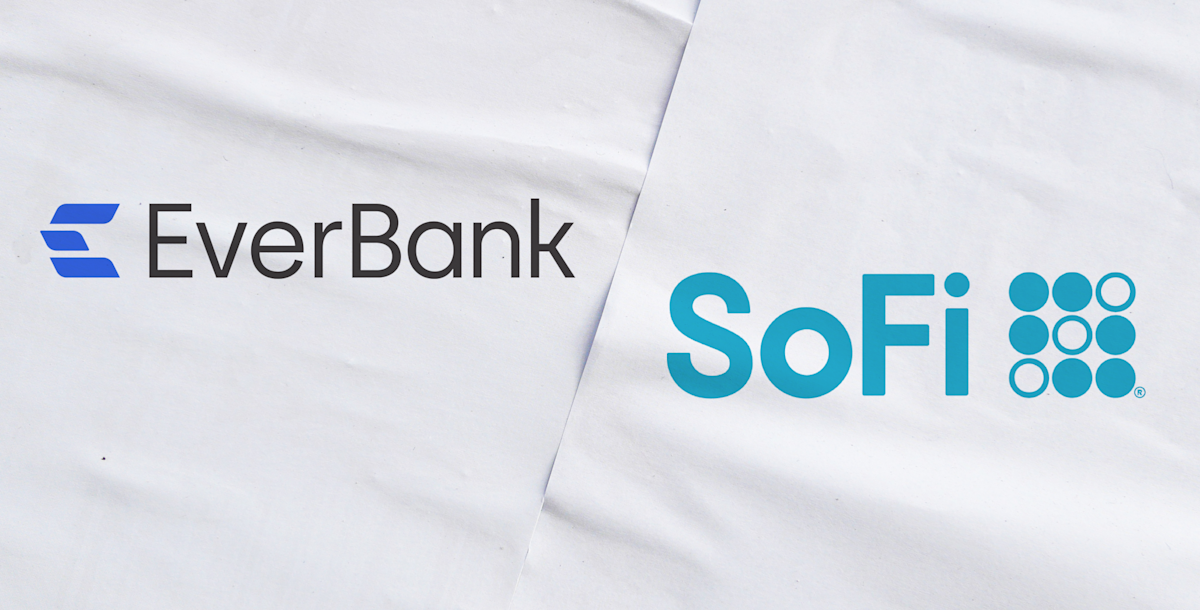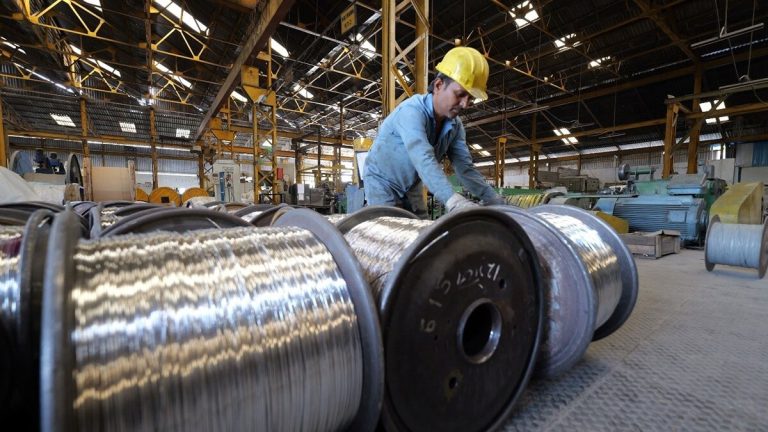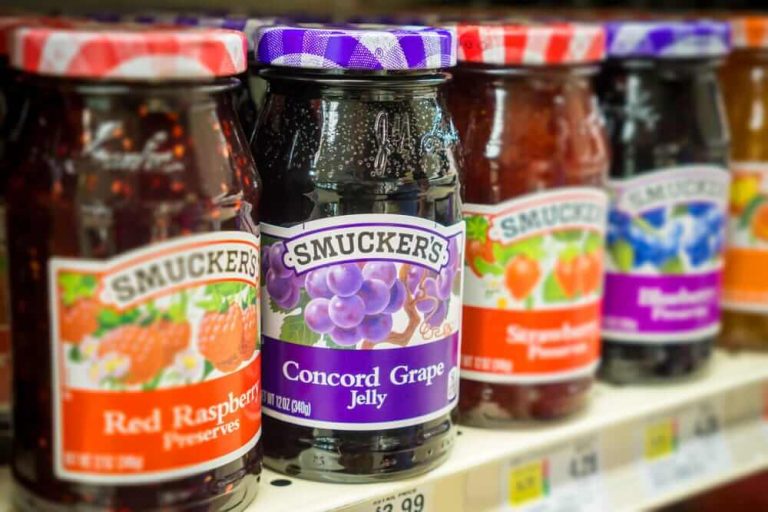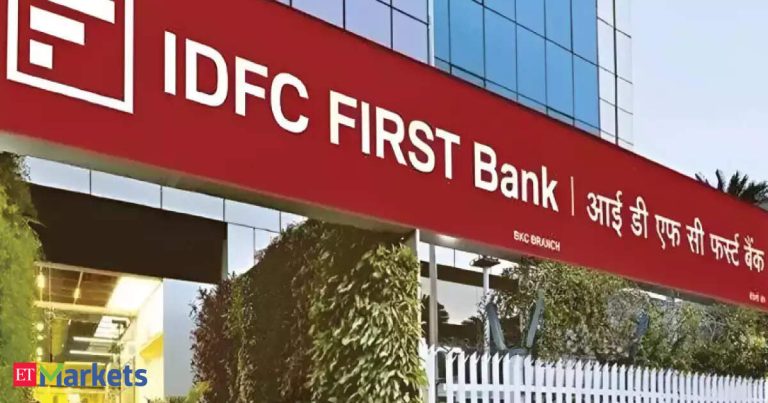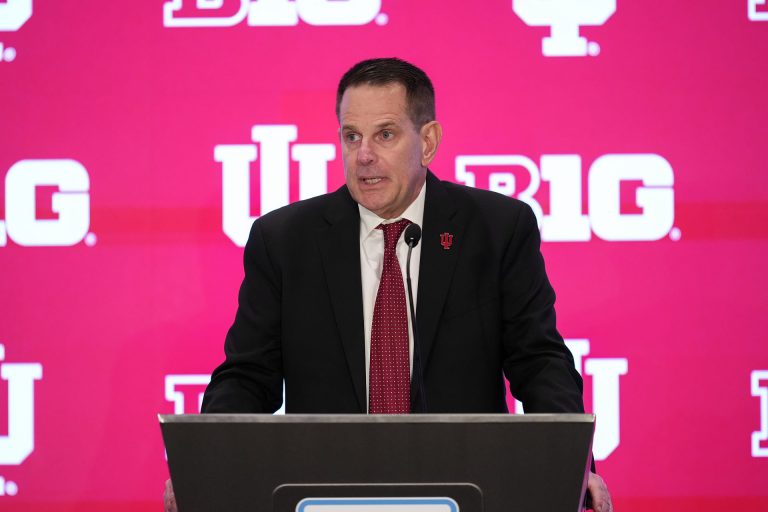If you’re looking to earn the best rates on your bank deposits, and you’re a fan of online banking, EverBank and SoFi are both good options.
Both of these FDIC-insured banks offer impressive deposit interest rates with no account maintenance fees. They also offer convenient payment services such as Zelle. So, is one better than the other? Here’s a closer look at how EverBank and SoFi compare.
This embedded content is not available in your region.
EverBank is the 61st largest bank in the U.S., with over $40 billion in assets. This national bank was founded in 1998 as First Alliance Bank and is currently headquartered in Jacksonville, Fla.
EverBank calls itself a “pioneer in online banking,” but despite its digital focus, in-person services are still available at several locations in California and Florida.
Everbank is owned by private equity investors and has acquired several banks since its founding, including TIAA-CREF in 2017 and Sterling Bank & Trust (purchase is currently in process). The bank offers a variety of commercial lending products, but no loans are available for retail (individual) customers.
Read our full review of EverBank
Social Finance Inc., or SoFi, was founded in 2011 and has its roots in student loans and student loan refinancing. In 2022, SoFi became a national bank with FDIC insurance. It now offers a range of banking products, including checking and savings accounts, credit cards, loans, and more.
Customers should be aware that this online-only bank came under fire from the FDIC in 2023 for overstating the amount of deposit insurance available to customers, when it was really depositing customers’ money to other banks without informing them.
SoFi still states that it can give you up to $3 million in additional FDIC insurance through its SoFi Insured Deposit Program. However, it is now disclosed that your participating funds will be deposited at other banks.
For checking accounts, SoFi has the standout option. Both banks pay far above average APY on checking, but SoFi offers double what you get from EverBank with no minimum opening deposit requirement. It’s important to note that SoFi doesn’t offer a standalone checking account; it’s bundled with their savings account as a combination online bank account.
New SoFi account holders can also earn a $300 cash bonus with a direct deposit of at least $5,000 to the account before 2026. Additionally, SoFi provides fee-free overdraft coverage up to $50. In fact, SoFi takes second place in our ranking of the 10 best free checking accounts available today.
What are the drawbacks? Both banks have limitations on how you can apply for a checking account. With EverBank, you can apply by phone or in person (if you can get to a branch in Florida or California), and with SoFi you can only apply online.
When it comes to savings accounts, EverBank is the standout option. Everbank offers a flat 4.30% APY for new savings accounts, which is hard to beat anywhere, and there are no special requirements to earn this rate.
With SoFi, however, you have to meet a few requirements to get the most out of their savings accounts. To earn the highest advertised rate of 3.80% APY, you must set up a recurring, monthly direct deposit of regular income (which can include government benefits) to a SoFi account.
Even so, both SoFi and EverBank’s accounts made our list of the 10 best high-yield savings accounts today.
If you’re looking to open a certificate of deposit (CD), you’ll have to go with EverBank, since SoFi doesn’t offer CDs.
But that doesn’t mean EverBank is a bad option. In fact, their CD rates are highly competitive. Everbank has CD terms from three months to five years, with rates starting at 3.5%. The highest CD rate they offer (4.1% APY) is available on 7-month and 13-month terms.
EverBank also has a bump-rate CD, which is an uncommon product. With bump-rate, or bump-up CDs, you can choose to increase your interest rate one time before maturity. These are the terms for EverBank’s bump-rate CD:
-
$1,500 minimum deposit
-
3.5-year term
-
One-time rate bump
-
3.50% APY
If you’re interested in a money market account (MMA), you’ll have to go with EverBank since SoFi doesn’t offer this product.
In addition to paying an attractive 4% APY on deposits, EverBank gives you a debit card and free checks on request for these accounts.
When it comes to the additional products they offer, SoFi and EverBank are quite different. Unlike SoFi, EverBank doesn’t offer any loans for individuals, but they do offer unique investment options:
For loans, SoFi has a long list of options, including a variety of home loans, personal loans, and private student loans. SoFi also offers investment services and insurance policies.
There’s no clear winner for the highest APYs (the annual rate you earn on deposits) between EverBank and SoFi. However, if you’re a saver, you’ll likely want to bank with EverBank. While your checking deposits will earn less than with SoFi, your savings deposits will earn significantly more than they would in SoFi’s HYSA.
That said, if you want a high-yield CD or money market account, only EverBank offers these products — and their rates are highly competitive.
When it comes to banking fees, SoFi and EverBank are both good options since neither bank charges account maintenance fees for their checking or savings accounts.
EverBank is an excellent option for savers. When you open a new Performance Savings account with EverBank, you’ll earn a practically unbeatable 4.30% APY, with no fees and no confusing account terms.
Just be aware that EverBank only has a few physical branches, so it’s mainly an option for people who do their banking online. If you’re hoping to bank with them in person, here’s where their branches are located:
-
Florida: Jacksonville, Clearwater, Boca Raton, Coral Gables, Fort Lauderdale, Naples, Fort Myers
-
California: Encino, Roseville
SoFi is worth considering if you’re looking for an above-average checking account and/or a variety of loan options. SoFi’s checking account pays decent APY with no fees or minimum balance requirements, and you can earn a bonus if you set up direct deposits to the account. Plus, you can get access to your paycheck deposits up to two days early.
